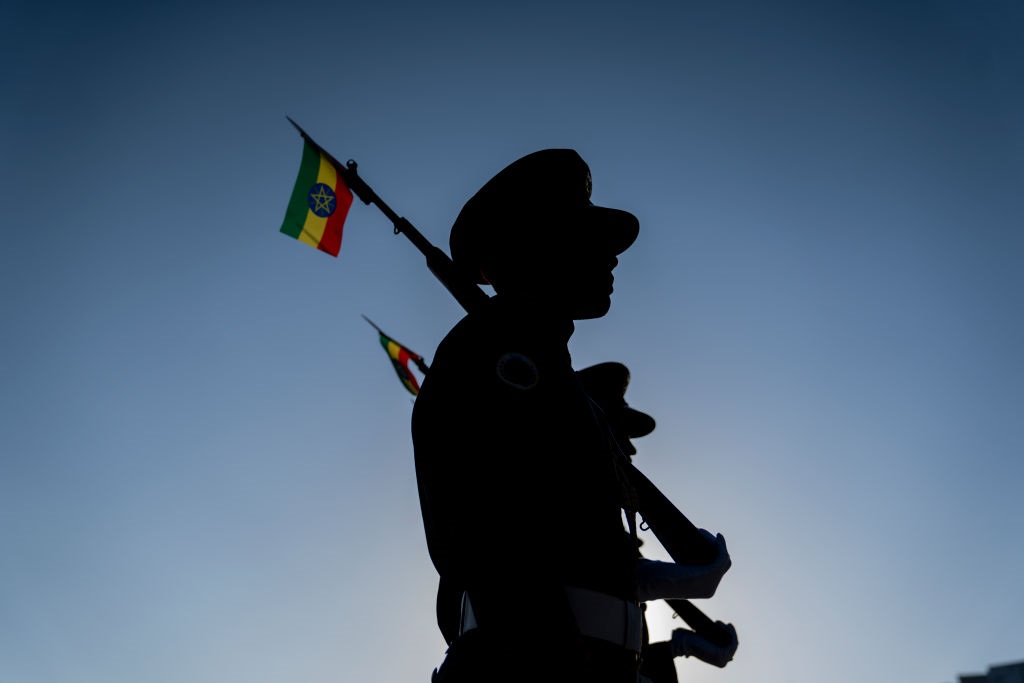
- Human rights activists fear that Eritrea may not respect the peace deal and withdraw from Tigray.
- The war in Tigray has accounted for over half-a-million deaths.
- After the peace talks, Tigray will fall under Ethiopia instead of the breakaway state it wants.
A day before the anniversary of the civil war in Ethiopia, a cessation of hostilities agreement was reached by warring factions in talks that went into overtime in Pretoria, South Africa.
The war in Tigray, which spilled over to the neighbouring regions of Afar and Amhara, began on 3 November 2020 and was set to mark its second year today (Thursday).
The war has accounted for over half-a-million deaths.
Research into the war by Belgium's Ghent University found that, by June this year, about 100 000 deaths were from fighting, 150 000 to 200 000 due to famine, and 100 000 due to lack of medical attention.
Some reports put that figure closer to a million people, while six million others in Tigray face acute hunger.
As a result, when the African Union-led talks got underway, stakeholders desired positive results.
Between March and August, a mini-truce was reached by the warring parties to allow much-needed aid into Tigray.
After the talks agreement was made public in Pretoria, Moussa Faki Mahamat - the chairperson of the African Union (AU) Commission - said:
United States Secretary of State, Antony Blinken, also welcomed the momentous step taken in Pretoria.
"We commend the parties for taking this initial step to agree to end the fighting and continue dialogue to resolve outstanding issues to consolidate peace and bring an end to almost two years of conflict," he said.
The Prime Minister of the Federal Government of Ethiopia, Abiy Ahmed, said he had counted on the continued AU resolve to the reconstruction of Tigray.
However, nowhere in his statement did he mention the United States, whom he earlier accused of being biased in the peace process.
Getachew Gebrekiros Temare, the executive director of the Tigray Human Rights Forum, told News24 he was worried that Eritrean forces might not obey the AU process.
He said:
Temare also said that Ahmed thanked the "brave members of the Ethiopian Defence Forces", but did not have the right energy for someone who wanted peace.
"I was anticipating sympathy once the peace agreement was made with him. Abbey Ahmed has the blood of hundreds of thousands of people. He hasn't uttered a word. Instead, the prime minister has paid tribute to his army.
"Remember, the military committed terrible atrocities, ethnic cleansing, and genocide crimes in Tigray. A good peace necessarily requires positive statements from the outset, if it is to be maintained," he said.
The agreement
Tigray would fall under Ethiopia, "in a manner consistent with the Constitution of the Federal Republic of Ethiopia", meaning the area would be under Ahmed's administration, instead of the breakaway state that Tigray wanted.
To avoid conflict, a political solution is required to address grievances from both parties.
Mekelle, the capital of Tigray, will fall under federal authority so that there's a return to normal life and social services.
Human rights violations will be investigated, especially after research work carried out during the war implicated both parties in gross human rights abuses on civilians and their livelihoods.
As part of the peace deal, respect for human rights is imperative and parties are expected to work together toward upholding democracy as defined in the AU charter on Democracy Elections and Governance.
Parties also agreed to "disengage forces or armed groups under their control" and put an end to covert or overt operations linked to the conflict, such as the laying of mines, airstrikes, and other forms of sabotage.
It was also agreed that the warring factions should form one army, and the Tigray People's Liberation Front should be on a Disarmament, Demobilisation, and Reintegration programme.






